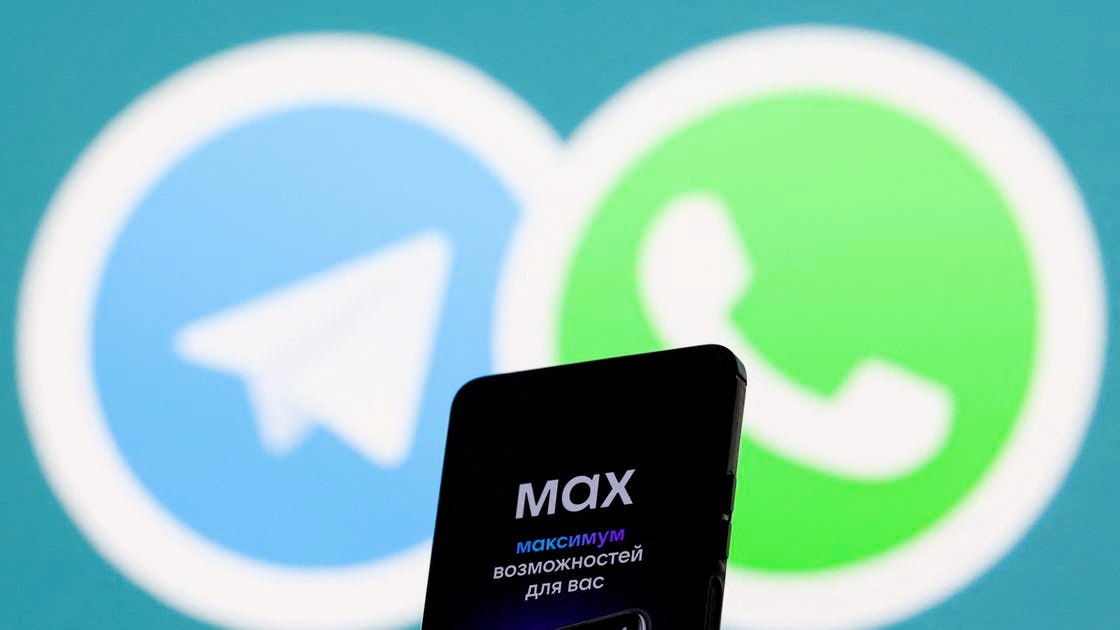In a move that confirms Moscow's efforts to enhance its digital control, Russian authorities officially launched the new messaging app "Max", which is promoted as the "national messenger", to be the local alternative to global applications like WhatsApp and Telegram, and even surpasses them with ambitions to become a comprehensive platform similar to the Chinese app "WeChat".
* An Official Launch from the Kremlin
Today, Monday, the Kremlin announced the launch of its official page on the "Max" app, where the first post of the official channel of the Russian president stated:
"Welcome, we have good news, we are pleased to inform you about the start of the official channel of the Russian president on the 'Max' app, we hope that the information about the daily activities of the head of state will be interesting to you".
* From Previous Failure to National Project
The story of "Max" actually began in May 2022, when the Russian company "VK" launched the first version of its own messaging app, but it failed to attract a wide user base.
However, in 2024, the company began developing a completely new and independent app from the VK platform, as reported on Wikipedia.
On March 25, 2025, the company announced through the newspaper "Vedomosti" the launch of the beta version of "Max", confirming that it includes multiple features including:
• Instant messaging
• Integrated payment systems with VTB Bank and Alfa Bank
• Business tools for developing mini-apps and chatbots
Just one day later, the app became available for download on digital stores.
* From App to State Policy
On June 4, 2025, Digital Development Minister Maksut Shadayev announced during a government meeting with President Vladimir Putin that "Max" would be officially adopted as a "national app", citing similar experiences in countries such as:
_ LINE in Japan
_ KakaoTalk in South Korea
_ Zalo in Vietnam
_ WeChat in China
Official procedures did not take long, as on June 24, 2025, the parliament approved a law requiring "Max" to be pre-installed on all mobile devices sold in Russia starting from September 1.
Senator Olga Yefanova also announced that the app will integrate in the future with the "Gosuslugi" platform, which is the official platform for digital government services.
* Extensive Promotion .. and Influencer Impact
Alongside government steps, the state intensified promotional campaigns for the app.
In addition to official channels, authorities enlisted influencers close to the Kremlin, most notably pop singer "Instasamka", who appeared in a promotional video saying:
"I was amazed that the app stays connected even inside a parking lot!"
According to a report by The Washington Post.
* Technical Issues .. and Controversial Ratings
Despite all the media momentum, "Max" appeared in its early stages as an incomplete version; it lacks essential features like public channels available in Telegram.
On the Google Play Store, the app initially received a poor rating (1 out of 5), before suddenly rising to 4.4 stars, amid media reports of "bots" or automated accounts that helped boost the rating.
Nevertheless, the developing company announced that the number of app users reached 18 million by September, according to Wikipedia.
* Chinese Ambition .. and Concerns about Surveillance
Russia aims to transform "Max" into a comprehensive digital platform, similar to the Chinese "WeChat", by integrating messaging with government services and e-commerce, with plans to link it in 2026 to:
• Local digital payment system
• Gosuslugi platform
However, this direction raises widespread concerns among experts and rights advocates, as many warn that the app could be used as a central tool for comprehensive surveillance and personal data collection.
These concerns are heightened by the approval of a new law imposing financial penalties on users for merely "deliberately searching" for prohibited content online, in a precedent considered a shift in targeting users instead of content producers.
* A Broader Context: Crackdown on Foreign Platforms
The launch of "Max" is not isolated from Moscow's digital policy, but comes as part of an extensive campaign against Western platforms.
Applications like WhatsApp and Telegram have already been banned or restricted, while major platforms such as:
YouTube _ X (formerly Twitter) _ Facebook _ Instagram have previously faced bans.
The "Max" app is not just a new messaging tool, but a strategic Russian project that combines communication, digital services, and potential surveillance, amid clear government support and high ambitions, but it also raises escalating concerns about digital freedoms in Russia.
Will "Max" succeed in establishing itself locally and perhaps regionally? Or will it meet the same fate as its predecessors under increasing state surveillance?
Time will tell.

